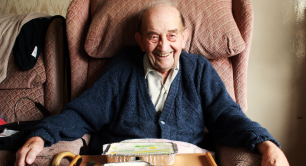The story of Social Business Trust
Two remarkable founders once had a brilliant idea that would give social enterprises access to the most sought after business knowledge.
Five years after forming, Social Business Trust (SBT) is still somewhat of a unique proposition. It is an organisation that seeks out social enterprises to support that is so diligent in its scrutiny that, of more than 800 ventures considered, it has chosen to work with just 13 to date. What’s on offer is probably the social enterprise equivalent of winning the jackpot: free business expertise from seven prestigious companies who source their employees from the cream of professional candidates. The icing on the cake is that funding, in the form of cash grants, is also available.
The seven firms partnering with SBT cover the range of services that any business is likely to need. Of all of them, British Gas is probably the most familiar. Of the others, Bain & Company are one of the world’s top three management consultancies – pretty useful when a social enterprise is scaling up and needs advice about strategy. EY (aka Ernst &Young) can take care of organisational and financial challenges alongside Credit Suisse. It would be fair to say that Permira, a private equity firm with committed capital of over €20bn, are also pretty good with money. Last but by no means least, the Thomson Reuters team know their stuff with product development and IT and Clifford Chance are a global law firm.
How did such a valuable powerhouse of business support come into existence? It all started with CEO Adele Blakebrough, who was brought up in a socially responsible environment. Her father, Reverend Eric Blakebrough, started the Kaleidoscope project, which works with heroin addicts – his daughter eventually went on to be CEO. Blakebrough’s next project was to co-found CAN (Community Action Network) in 1998, intended to develop, promote and support social entrepreneurs and social enterprises. CAN was also one of the co-founders of the Social Enterprise Coalition, which would later become Social Enterprise UK. For her part, Blakebrough was awarded an MBE for services to social enterprise in 2006.
Our dream was that all aspiring social enterprises that wanted to could access the best business skills.
The origins of SBT can really be traced, though, to when she started working with Permira’s then managing partner Damon Buffini. As Blakebrough says herself, “Permira was looking to do something philanthropic and they were put in touch with me. Damon and I developed a great working bond and decided to join forces to try and do this. Our dream was that all aspiring social enterprises that wanted to could access the best business skills.”
Buffini, SBT’s co-founder and chair, is also a pretty remarkable character. Having read law at Cambridge University he went on to study for an MBA at Harvard. After shining in management consultancy and making his fortune in investment management (founding and leading Permira) he later went on to be appointed to Prime Minister Gordon Brown's business advisory panel. Not bad for a kid from a council estate in Leicester.
Social enterprises that might potentially be taken on by SBT need to meet the criteria of being established and having £1m in turnover, the majority of which must come from trading. A strong management team is a prerequisite, as is a willingness to accept assistance from SBT and their corporate partners. Perhaps more obviously, they also have to have ambitions to grow.
Due diligence follows, performed by the SBT team, assisted by secondees on rotation from EY and British Gas. A senior executive from one of the corporates, known as an SBT investment director, will perform further scrutiny before the review goes to the investment committee (pictured above, with Blakebrough and Buffini sitting centre). As well as Buffini, the committee is made up of senior executives from the seven corporate partners. It’s a heavyweight gathering, including Steve Varley, chairman and managing partner of EY UKI and Russell Chambers, senior advisor at Credit Suisse.
Those who have made the cut include the social integration charity The Challenge, social enterprise nursery group London Early Years Foundation and educational excellence champions Challenge Partners.
SBT have a clear and ambitious goal: to help transform the scale of social enterprises and thereby improve the lives of over a million of the UK’s most disadvantaged people. They’re well on course to do this, with 750,000 beneficiaries currently. Their target of a million is projected to be achieved by next year. All of which makes co-founder Blakebrough very happy: “I get excited every day by their successes and they way that I see them developing. The money that we have given them is a gift. The time that we have given to them is a gift. The reward is seeing those beneficiary numbers grow.”
Photo credit: Fraser McGruer


![[file:field_file_image_alt_text]](https://www.pioneerspost.com/sites/default/files/styles/node-teaser/public/images/article/Real%20Challenge%20Design%205_0.jpg?itok=kj90w9kq)
